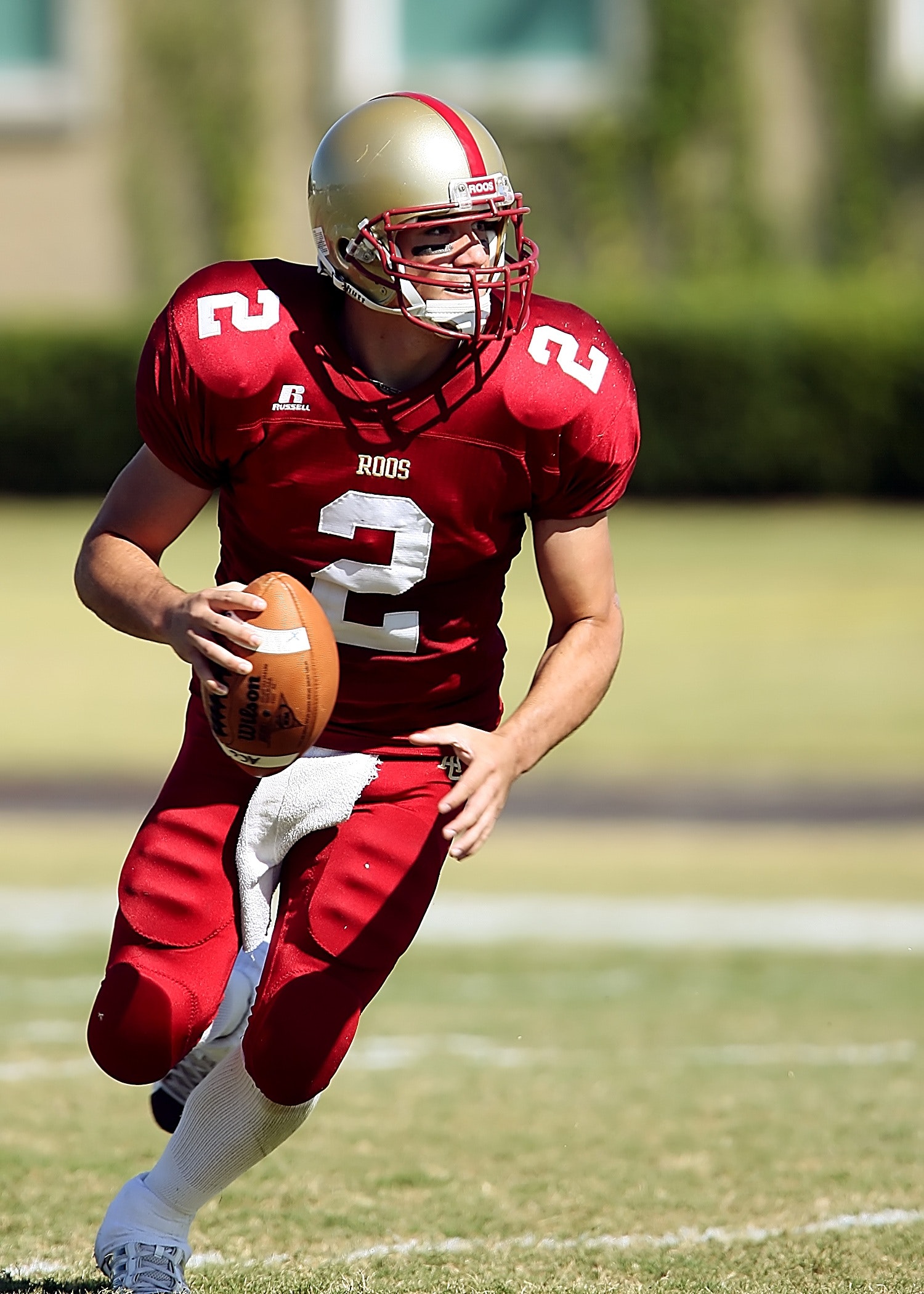I want to tell a story about a boy from my time teaching. He was someone I didn’t really help. He took approximately 349 AP classes, he could toss touchdowns with ease, and when he got to high school his natural charisma made him the “well-rounded student” who ascended to leadership positions and he quickly became a teacher’s favorite for his willingness to pipe up in class.
Ilya arrived in my AP Literature class in September with a broad smile; he was used to walking underneath the halo of the Good Kid and had every expectation he’d earn valedictorian and make it to his Ivy League college of choice. Maybe he will, I thought, he’s certainly got that rep around school. After our first day–just introducing the course and ourselves to one another, really–Ilya came and asked to set up a weekly session for extra help. He needed a course average above 95 and was prepared to put in the work. Hmm, could be fun to work with a kid who casually read Anna Karenina over the summer, as he humbly mentioned in that class.
It took just two of those sessions before Ilya came clean. Much of his success, he averred, came down to the ADHD pills he could buy from the kids with legitimate prescriptions. Ilya learned early in his schooling that focus was all-important and why not take every chance to achieve it? I asked him one day why his voice sounded croaky–he was a beautiful tenor in the school play, naturally. The dark rings under his eyes told the tale of his late night preparing his six courses’ work. The grades all came back A’s; at what cost?
You can see I’m pointing to the need Ilya had for a mentor, an adult who needed to know that kid in his entirety, not just as an Achieve-a-tron. Ilya’s parents were both kind, proud participants in their son’s successful trajectory. They rarely made it to the boarding schools he’d attended since 7th grade, but they loved him and, being Big Wigs in their respective fields they clucked approvingly since they’d followed the same course in their own adolescence. Ilya hid his deep-rooted fear of failure behind his glowing smile, behind the game-winning run in the league championship, behind the perfectly composed Fitzgerald essay and the sterling Chemistry lab.
This isn’t a self-aggrandizing encomium–I’m not the mentor who filled out the depth behind a boy who looked like a million bucks on paper. Of course, I had Ilya begin seeing the school counselor and they addressed his drug use. Turns out he kicked it pretty easily, given that he had exceptional support from the counseling office, that he continued to speak with his counselor weekly, and that he discovered a bedtime before 2 AM did wonders for his focus and achievements. It actually got easier when he merged his prodigious talents with a deepening self-knowledge of how he worked best. It was an important lesson in a senior year that’s full of tension and self-doubt for so many high schoolers.
But it was an Admissions junior counselor new to the school, 23 years old, who mentored Ilya in the most remarkable way throughout his senior year. The school employee was assigned to time football games, not exactly a leadership position, and so the stakes were perhaps lower for Ilya to open up. What Jeff offered Ilya was a credent ear, he took time to ask about how the quarterback felt going into that final drive, not just praise him for breaking the school record for passing yards. He joked with him about the failings of Ilya’s favorite basketball team. Seriously, who could support the Golden State Warriors? (This was more than a decade ago; seems like Curry, et. al. have done pretty well in recent seasons). Ilya loved it. He’d been told that his ideas, his work, his accomplishments, and his opinions were flawless for so long that he came to think he could expect it from all quarters, even as he hid the fact from everyone that he was working for those others’ high regard, not a self-regard based on the calm that comes, paradoxically, from having a mentor that says “Is that your best” instead of “You’re the best,” and then lets the kid decide for himself. It’s a matter of giving internal reward for superlative work, rather than holding out the carrot, than telling the teenager how high to jump in order to achieve external indicators of success. Jeff was re-centering Ilya’s focus. He was allowing the growing boy to ground himself in self-acceptance. He made it easier to uncover the Ilya hidden in a block of marble, rather than tell the kid you must look like The David in the Uffizi Gallery.
Jeff ended up taking those weekly extra help sessions from me (Ilya was crushing my class anyway and he seemed to enjoy the work and the classroom even more once he’d found his true mentor). I love all my students. But sometimes educating kids requires turning over the reins when two adults recognize who the mentor really is. Jeff and Ilya would sometimes be laughing over a fumble the quarterback had dropped when I passed by the Admissions office (what kind of thing is that? To look at a failure with levity and distance, knowing that perfection isn’t the goal, just strenuous effort that may not come with concomitant excellence?). Jeff was showing Ilya that being gentle with oneself after a failure won’t cause the world to crumble, it won’t let down everyone around you, and it certainly did that thing that our tests and games and schedules ought really to accomplish: teach young people how to be human, not robotic high flyers in the race toward quickly receding finish lines.
Now, Ilya made valedictorian. He won a handful of school awards for Best in This or That, for leading the school government, and he was MVP of the football league that fall. Ilya went on to Princeton. You knew all along as I told this story that it was Jeff who was on his feet first when Ilya walked across the graduation stage. You knew that Jeff’s face was the first that Ilya looked for when he finished his solo in the spring musical. You knew that Ilya was showing his true identity in the special code that mentors and students share. Ilya owned those successes–he did the work, put in the time–but came to regard them as expressions of self. They were indicators of who he was, but Jeff understood him beyond the shiny baubles of excellence. Jeff listened patiently to Ilya’s fears, he helped him grieve when the boy’s grandfather died unexpectedly that February, sat without judgment when Ilya’s boyfriend suddenly broke up with him. Mentorship comes in many colors.
Really, this has been a story of what we adults can all do when we treat our kids as complex becomings, not success-dependent beings. It’s imperative that adults adopt an interest in someone younger, make a legitimate endeavor to listen, to guide, and to encourage. You don’t need to be a teacher–remember Jeff never set foot in a classroom and he ended up going to work for another company after the period he spent in our school. You don’t even need to work in education. Perhaps the business world could be a little less Gordon Gecko. Or maybe we could use a few more Little League coaches, swim instructors, community theater directors, impromptu organizers of dinners out for the junior partners where work talk is banned.
Children, of course, need this kind of mentorship most keenly since they haven’t seen enough of their worlds to gain a solid balance. Being a mentor, gaining a mentor, observing mentorship in action–they’ll make your life more full and remind us all we owe our greatest effort to one another, not our grades or bank accounts.
Last thing: Ilya left his job in investment banking just a few years out of Princeton. He started a company that consulted with families who needed guidance through the college admissions process. Ilya made certain his clients knew he would only push their kids toward schools that best matched their identities, that he would forcefully argue against the scatter-shot “let’s apply to every university in the Top 50 Report from that magazine” approach. See, Ilya had begun to figure out what school is for late, in his senior year of high school, so he wanted to offer that same realization to other kids too as quickly as he could. When the business began to expand, Ilya needed to hire more staff. You probably know by now who his first employee was.
Jeff.






